Originally published 2015
Why do some dental teams have all the fun? Why do some practices always seem to advance and be “in the zone” while others feel stagnant and stuck? Why is it some offices work twice as hard and twice as long as others only to find themselves achieving the same results? The answer lies in how well they come together to play the game of dentistry.
Great dental teams surround themselves with people who share passionately in a common set of ideals and values. They grow a culture of Shared Leadership, which means each member of the team is seeing, thinking, and acting towards a common, bigger outcome. Everyone shows up to play the game of dentistry as though the business were their own. Everyone plays with an attitude that sings to others, “It’s not about me; it’s about us.” Everyone is mindful of every patient who walks through the front door as well as of the unique challenges and needs of all other positions/roles on the team. Most importantly, no one is focusing solely on his or her own compartmentalized area of responsibility. Just imagine a practice where we are all constantly thinking and acting this way. That’s when the magic happens. That’s when the chemistry of a champion leadership team is born.
When I talk about “shared leadership” in seminars and workshops, I see many people nodding their heads, but often in a desperate sort of way. They seem to grasp these concepts in theory while simultaneously surrendering to the impossibility of actually making it happen within their own practices. The fact is we don’t need the title of “leader” to exhibit leadership behavior. I have found the ultimate key to success in dentistry above clinical skills, finance, technology, systems, or office manuals is our strategic ability to come together as one functional unit to play as leaders on our team. Although core levels of these other competencies are important, it is our ability to grow leadership-minded players around us that remains our ultimate competitive advantage. There is a difference between a group of highly skilled individuals versus a group of people who are playing a team game. Different results show up around a group of people who are truly playing together as a team.
Turning co-workers into team-oriented leaders is not that difficult to do. In fact, if we go deep, it’s what people really want. That’s what we all need in order to feel more fulfilled and empowered to succeed. Employees will be most excited and committed to their workplace when they have a voice in the direction of the organization and when they feel invited and challenged to contribute their ideas. Championship teams are provided a platform on which to exercise their strengths and creativity. I’m not talking about having too many chiefs. I’m talking about having people who are focused on the goals of the organization while they play in their positions or areas of responsibility. This is why taking time out of your business to work on your business is so important.
Well-run team meetings are the key to growing involved leaders and creating whatever we want in our practices. Meetings achieve much more than just an action plan for solving problems. They also serve to increase each individual team member’s ownership and commitment to the growth of the office. Meetings get people involved. They unleash the creative powers and collective wisdom of your people. When run properly they can fuel an atmosphere of camaraderie, which can transform a group of highly skilled individuals into a performing team with which we all desire to play!
If meetings are so important, then why do so many practices avoid them? I think there are two interconnected reasons. Firstly, many production-minded practices don’t want to give up valuable billing time to sit in one room and talk about the same things over and over again without seeing permanent change and follow-through. The second reason is that most meetings are not organized or set up to succeed. This causes them to digress into gripe sessions that have very little positive impact on the growth of the business. Poorly run meetings can actually stifle passion, stop progress, and often serve to destabilize group relations. Eventually they begin to be seen as ineffective and are avoided and resented by the group.
We must walk away from each team meeting with a deeper sense of our circumstances and opportunities and with a clear set of strategies for moving in the direction of our goals. Meetings should draw from the collective wisdom the group and allow all team members to be an integral part of running the business. Regardless of what role you play in the practice, everyone’s perspectives and ideas are powerful ingredients for planning the growth and development of the business. I have seen dental teams walk out of well-run team meetings with ideas and strategies that none of them would have ever been able to come up with individually. As the old saying goes, “None of us is as smart as all of us.”
Over the years I have compiled a list of the most common things that seem to consistently destroy productive meetings. Has your team ever allowed these to happen in your office?
- Not starting on time. Not enough time scheduled.
- Whole team not present.
- Lack of a clear pre-planned agenda.
- Interruptions and distractions during meetings (phones, lunch, patients).
- Lack of creative, passionate, engaged participation.
- Negativism, emotional reactions, personal attacks.
- Drifting off topic with no facilitator to keep meeting focused and on track.
- Resistance to change. Seeing barriers vs. solutions. Playing the Devil’s Advocate.
- Not making extensive personal notes.
- No clear strategic agreements.
- No clear implementation plan, i.e. “who” will do “what” by “when” and “how will we “know.”
- Not reviewing, tweaking, and enhancing last meeting strategies.
Give careful thought to your meeting process, and design it to bring your people together. If the whole thing is a one-way flow of information with one person at the head of the table doing all the talking, it won’t stimulate much unity or positive change. If you want to experience a constant sense of growth and achievement in your dental office, then regular, well-planned, and well-executed full team meetings are the ticket to developing your dream team that will take you there.
As a dental business, we play a very important role in society. We don’t sell dentistry. We help our patients to live and feel better. We could even say we provide happiness served through the medium of dentistry. Carefully planned, well-run team meetings are the gravity that will pull your people together and organize your collective activities into this common theme. As a 21st century team, you must begin synchronizing your focus and activities to more effectively deliver these enriched experiences and outcomes to your customers. Then you will no longer be serving people’s teeth but their spirits as well. That’s when the profession of dentistry gets really exciting. That’s when our patients will perceive the greatest value from our services and be inspired to desire all that modern dentistry can do for their specific situations.
Remember, you don’t grow a business, you grow the people within your business; then together you can take your business anywhere. Developing yourself and growing leadership-minded team players around you are essential to growing a thriving practice that provides great service and achieves excellent results. Imagine coming to work with a bunch of enthusiastic, confident, and positive people who are all working together on behalf of a future to which they have all committed themselves. This takes leadership! Shared Leadership created during and following effective well-run team meetings!

UPDATED INFORMATION FOR PETER BARRY
Peter Barry is Founder of “Practice Mastery” a Team Development Coaching company that serves the growth & development needs of your practice. He provides customized group and one on one “Success Coaching” to Dental professionals and industry companies across N. America.
FMI: IG @peterbarrycoach / peter@practicemastery.com / www.practicemastery.com / 416-568-5456

